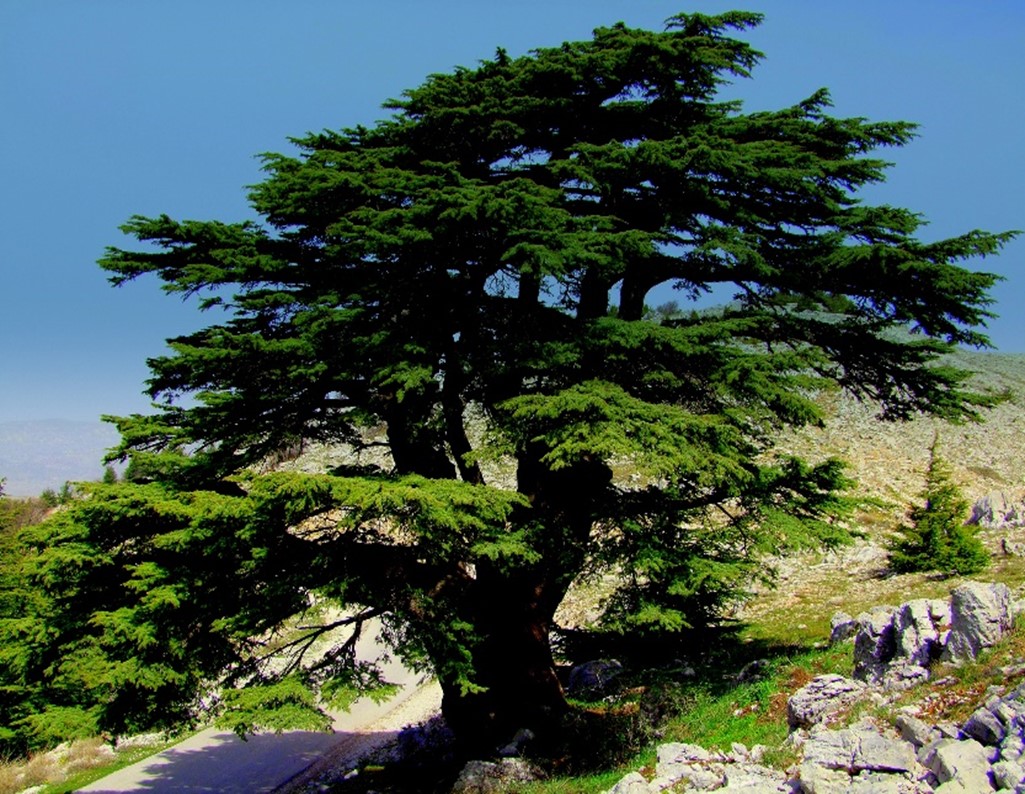
It is as majestic as can be, aging elegantly over the course of the years. Mentioned in the Holy Bible around seventy-five times, and deeply rooted in the Lebanese soil, it has attracted many people around the world. A breathtaking national emblem whose magnificence is unparalleled: the cedar tree.
Peppered around the country are many cedar forests which can be found in Bcharri, Tannourine, Jaj, Barouk, and other areas across Lebanon. The loftiness of this evergreen tree tells its own story where different meanings and symbols lie within its branches. The cedar tree is a reflection of “strength” and “resilience” as it refuses to bow in front of any challenge that circumstances may impose. It has the ability to grow and survive in environments that show no mercy. During harsh winters, the cedar can withstand massive snowfall without allowing any single change in weather to affect its features, bringing to light the true meaning of “immortality.”
For ages, this noble tree has been of interest to the different various civilizations that had inhabited Lebanon. Preferred over all other types of trees, the cedar stole the show during ancient times. Fragrant, immense, long, and hard-wearing, cedar wood was the perfect choice for both trade and construction. Byblos grew rich trading cedar timber with Egypt, a country where large strong wood was a scarce resource. Ancient Egyptians used cedar resin in the mummification process. The Assyrians, Persians, and Babylonians relied on this valuable good to construct their most important temples and ships.
A Lebanese flavor was added to the movie “Harry Potter and the Order of the Phoenix” where a cedar tree from Lebanon makes an appearance. Located in the garden of Blenheim Palace where part of the movie was filmed, tourists from all over the world visit the palace and come stand in awe in front of its magnificence.
The presence of the cedar tree speaks for itself, an ideal way to say “made in Lebanon”. In the center of the flag, a cedar tree stands tall. On the planes of the Middle East Airlines is the logo of the cedar tree, making this Lebanese heritage soar high in the skies. While traveling, the cedar symbol is present on your passport, reminding you of how charming the country you come from is, in addition to always being in your wallet, printed on the Lebanese currency. This tree is featured in many commercial logos as a way of paying homage to the “Land of Cedars.”
Throughout the years, the cedar tree has been a silent witness to the rise and fall of civilizations, a desired wonder that was of great importance during ancient times. It has been and will always be a reflection of Lebanon and its resilient people who are strong and determined, forever standing firm against threats and confrontations, never allowing any situation to bring them down to their knees.